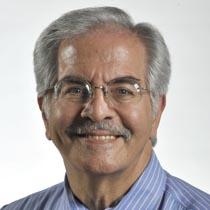Well, that explains it, correct?
Amarillo officials teamed up with business and civic leaders to go through downtown’s revival plans in minute detail. They explained a lot, answered questions, heard gripes and compliments. Roughly 300 residents gathered at the Civic Center’s Heritage Room to hear it all.
End of debate? Not even close.
Now, for the record, I wasn’t one of the attendees; work commitments kept me from going downtown to hear the pitch and to watch the reaction. I cannot comment specifically on the details of the hearing. Having stipulated all of that, I’ll now tell you that I continue to scratch my head over this notion that the city is somehow conducting all this stuff in secret.
I’ve looked at some of the online comments posted on Amarillo.com; I still am amazed.
The downtown project needs a couple of starters to keep it going. One of them is that multipurpose events venue, aka MPEV and/or “the ballpark.” Without the MPEV, there likely will be no downtown hotel, which would be built and operated by a Dallas-based hotelier. Without the hotel and the MPEV, there’s no parking garage.
The project would be done.
And yet …
Some folks in high places think the MPEV is a bad idea. They’ve dislike the notion of building a convention hotel downtown without first expanding the Civic Center to make it more conducive to conventions they say are going to other cities.
Weaving through all of this is this notion that the city has done things under cover. They’ve kept vital information from the public.
From what I have heard about the daylong public meeting Wednesday at the Civic Center, nothing of the sort can be validated. Yet the cynics out there — as illustrated by some of those online comments — keep insisting the meeting was a put-up job, meant to paper over the “real issues” relating to the downtown development proposals.
The project was estimated originally to cost $113 million — give or take a few hundred thousand bucks. I understand it’s been reduced to around $92 million. It’ll be financed by private investors, who’ve been given tax inducements from city and county governments. The city will put hotel-motel tax revenue to work in helping finance the project.
Oh, and let me add as well that the tax revenue in question comes from people who come here to, uh let me think, attend conventions or other entertainment-related events.
Those tax inducements? They involve tax abatements, contrary to what one leading local — and vocal — businessman, Craig Gualtiere, said recently, do work. They actually do provide incentives for business to come to communities, set up shop, build things, hire people and provide whatever service they are in business to provide. OK, so we exempt those businesses from paying property taxes for a few years. Then they join the tax rolls. Amarillo is not creating a new invention with this device; it’s been tried and proven all across the nation.
Yes, one can overdue tax abatements, but do you really think city and county officials are unaware of that risk?
So here we are. The community has heard from the downtown redevelopment brain trust.
Let’s proceed.


